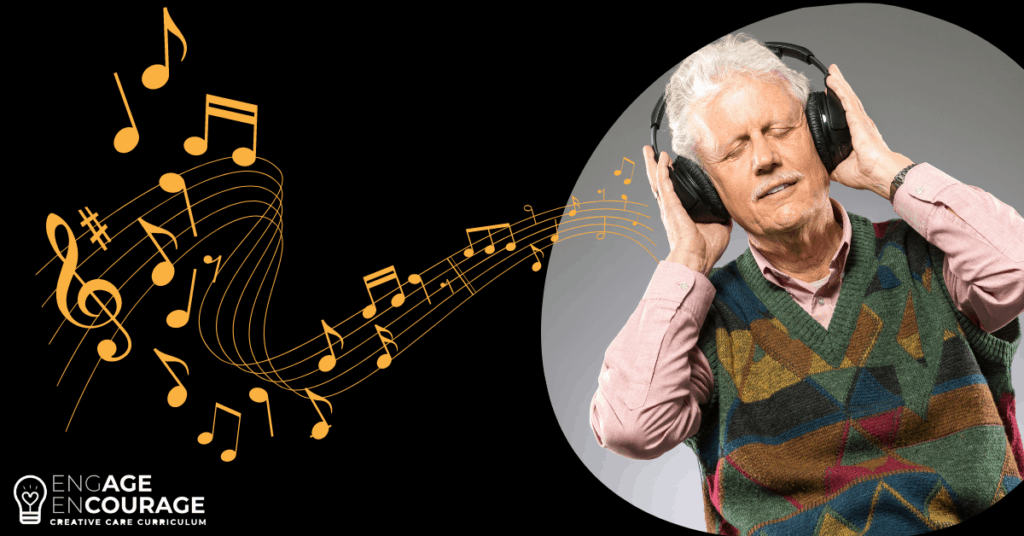Music creates magic for people with cognitive impairment; we offer multiple music classes
Music is an inherent part of every culture, as recent research out of Harvard University indicates. It also resonates with those with cognitive impairment and can be beneficial in their care.
For almost everyone, listening to music summons emotions, which can give a person a sense of self even if they’re not sure why, according to an article in Today’s Geriatric Medicine. But it can also trigger memories — an important aspect of working with patients with dementia. The Alzheimer’s Association page on Art and Music states, “Even in the late-stages of Alzheimer’s, a person may be able to tap a beat or sing lyrics to a song from childhood.”
In addition, music can improve mood, provide the opportunity to interact socially, decrease pain and anxiety, and much more.

The article in Today’s Geriatric Medicine also outlines how music can help people communicate, which can ease their sense of isolation, and how it employs cognitive skills, which may slow the progression of impairment. On top of everything, music often leads people to clap, sing, and dance, which benefits people physically.
Today’s extensive selections of digital music make it possible to find music for every individual. An article in Aging Care outlines how social worker Dan Cohen used digital music players to create custom playlists for patients in a local nursing home. Within weeks, caregivers saw improvements in many of the patients such as less aggression and agitation, and Cohen turned the program into a nonprofit called Music and Memory.
Also, according to the Aging Care article, brain scans show stimulation in the medial prefrontal cortex (where memories are made), which may help patients recognize loved ones they associate with a song, among other benefits. Other patients have been taken off or reduced their medication for depression and anxiety thanks to music therapy. This result has been observed in scientific studies as well, including one out of Lyon, France, which suggests music may soothe anxiety in Alzheimer’s patients.
At EngAGE EnCOURAGE, our entire model is built on triggering feelings of self-worth, happiness, and positive memories thanks to engagement. Even though we may not understand all the science behind it yet, most observers agree that music therapy can be an important element in cognitive care.
EngAGE EnCOURAGE™ provides quality curriculum for use in programming at assisted living communities, adult day clubs, and for memory care providers. Reach us via email or toll free by phone at (800) 990-9806.
